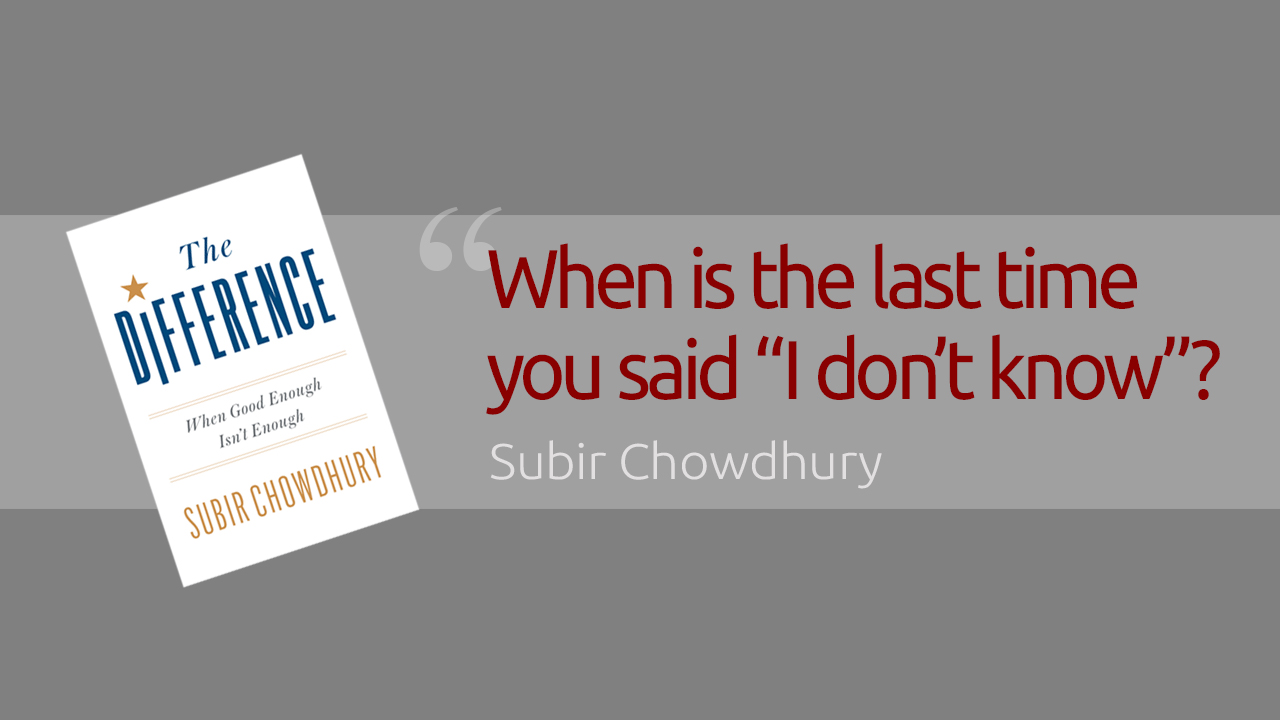Being fearless about truth makes you straightforward when you face uncertainty.
Quality & Me
Subir shares short stories about what people do to make a difference everywhere they go. We can make huge contributions to the way we function as a society by standing out as an example within our own community: at work, at our places of worship, among our colleagues, friends, and family. All it takes is the courage to step up and being straightforward, thoughtful, accountable, and resilient.
I admit it: I don’t have all the answers. But I do have confidence. Enough confidence to know what I don’t know—and admit it. Enough confidence to speak up and out when I know something isn’t quite right.
Being straightforward means you know when to speak up even if you don’t have the answer. When I admit I don’t know something, it doesn’t mean I can’t learn or solve a problem. In fact, I generally work harder when I don’t know something than when I do.
Truly successful people aren’t afraid of these three words: “I don’t know.” They don’t let their egos or pride hold them back. When you are straightforward, not only will you be more successful, but you will also have more fun being successful. Why? You’ll have nothing to fear. You are completely liberated. You don’t have to remember the last lie you made up, or who you told it to.
I was at a meeting hosted by an organization that provides financial support to low-income countries. Everyone there was straightforward, and I enjoyed participating. We spent our time at the meeting discussing what extreme poverty was, and how we could help eliminate it. On the last day, each of us received a folder of materials, including copies of the presentations that had taken place.
What shocked me was that most of the material was a collection of materials we had all already received electronically before the meeting. Most of it was comprised of bios meant to stroke our egos! Here we were, talking about ending extreme poverty, and we had wasted resources printing out materials we had already received.
I decided to put my caring mindset to work and be straightforward. I asked the entire group what we were thinking. I told them we could have fed twenty people with the money we wasted on paper and printing. The thing is, everyone agreed! A healthy discussion of the organization’s inefficiencies resulted, and we made a lot of progress toward out goals.
By being straightforward, we were able to make progress.



















